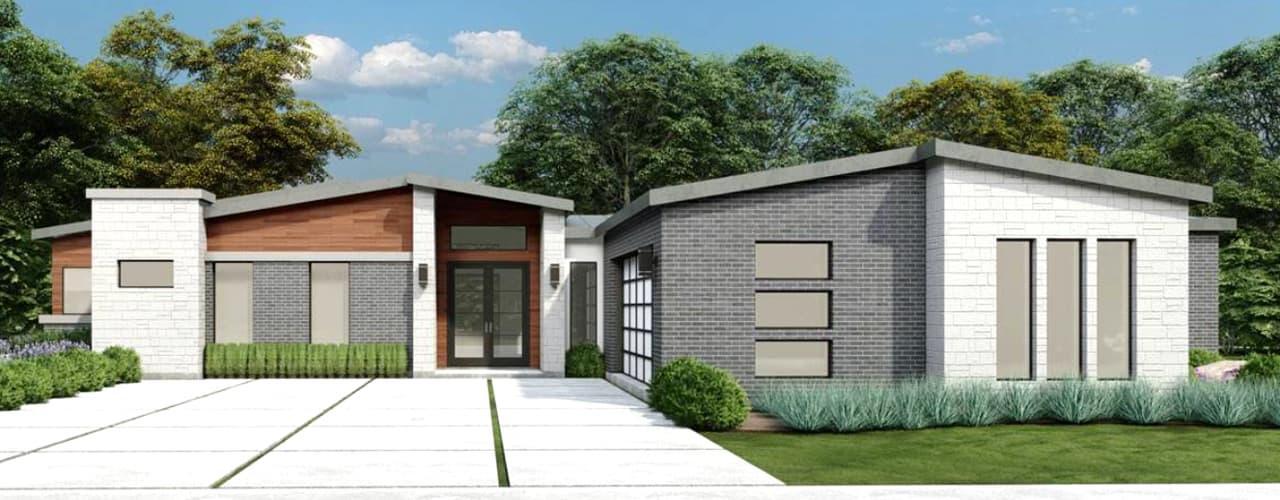
SIDING & CLADDING FOR EVERY LOOK & LOCATION
Learn About Durable & Sustainable Cladding
Durable Wood for Exterior Applications
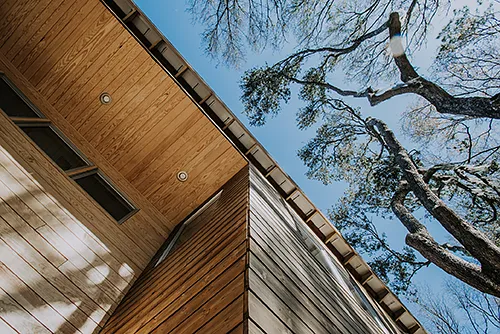
Many people love the look of wood on their homes, but they’re afraid to invest in a natural material that can be damaged by the elements. And very few of today’s homeowners have the time or skill to perform regular maintenance and maximize the lifespan of exterior wood. That’s why synthetic and composite alternatives have grown so popular, but they don’t provide the same appeal as natural wood and eventually end up as plastic waste in landfills. If you’d like an eco-friendly, real-wood solution that performs well through the seasons without upkeep, look into modified wood!
Cladding That Complements Your Exterior
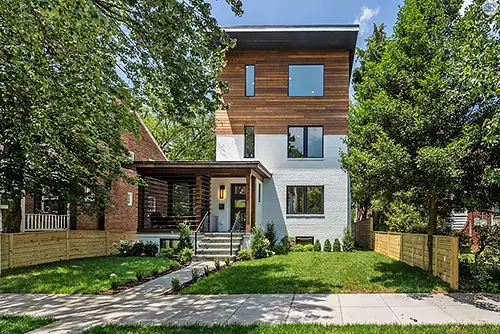
Finishing your home’s exterior gives you plenty to think about, and one of the first things you’ll decide is what to use on your walls. Have you considered cladding? Although often used synonymously with siding, cladding is actually thicker, more durable, and installs without overlapping. It also creates a rainscreen system because it isn’t nailed down against the waterproof wall sheathing; furring strips or rails keep the cladding securely in place while maintaining a gap between the exterior wall surface and the boards to allow drainage and evaporation. This nifty arrangement blocks the wall from the vast majority of moisture from the get-go, but it’s also prepared to release any that infiltrates the gap before it can cause damage. Rainscreen cladding is preferred in very wet climates, but it can provide peace of mind elsewhere, too.
High-Performance Vinyl Siding Options
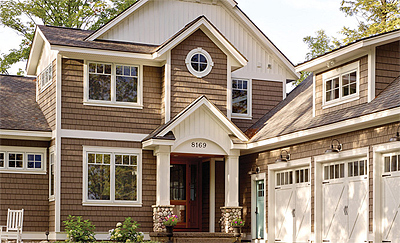
When it comes to choosing siding for your home, it can be hard to find the right balance between cost, looks, and durability. There are so many diverse options that many homeowners have trouble making the final decision, but they often find that vinyl siding checks all the boxes. It offers a variety of attractive profiles and colors at an affordable price. It’s the most popular siding choice in the United States and can be engineered to withstand the environmental challenges of different regions—here’s how vinyl siding can perform to meet your expectations!
Reasons to Consider Prefinished Siding
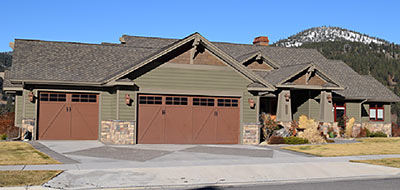
It’s harder for the average person to choose exterior products for their new home than interior finishes, but that’s no reason to be an uninformed consumer! If you’re starting to look at siding, you might be wondering if prefinishing is worth your while. It turns out that prefinished siding is actually perfect for the average consumer, and here’s why!
Choosing House Siding for Your Region
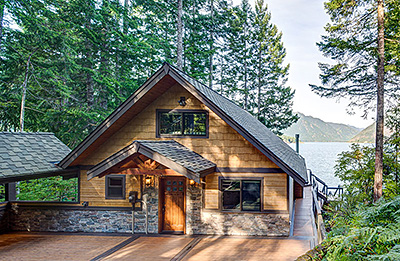
Even though a new house built near the coastline of Maine might look similar to another constructed in the Arizona desert, their exterior finishing products must be carefully chosen to ensure they can stand up to their climates. Not only do you risk having to replace siding if it’s easily damaged by the elements, but it can compromise the integrity of your home and lead to costly repairs. Be aware of your needs as you shop around—here are some important points you’ll want to keep in mind.
All Siding & Cladding Articles
BROWSE HOME PRODUCT ARTICLES
- Creating a Spa-Like Master Bathroom »
- Designing a Water-Efficient Bathroom »
- Design a Modern Bathroom »
- View All Bathroom Articles »
- Building a New Home »
- Building a Duplex »
- Finding the Right Home Builder »
- View All Building Tips Articles »
- Adding the Right Columns»
- Decorative Touches for Your Interior»
- Shutters for Every Architectural Style »
- View All Columns & Millwork Articles »
- How to Use Specialty Laminates »
- Decorative Touches for Your Home's Interior
- View All Countertops and Surfaces Articles »
- What Goes Into a Great Deck? »
- Decorative Touches for Your Home's Interior »
- View All Decking Articles »
- Choosing Glass for Your Entry »
- Stylish Personas for Your Front Door »
- Using Sidelites and Transoms »
- View All Door Articles »
- Choose Siding for Your Region »
- Get the Most Out of Exterior Paint »
- Mixing Siding to Define Your Exterior »
- View All Exterior Articles »
- Finding the Right Home Builder »
- The Appeal of Small House Plans »
- Choosing the Perfect Floor Plan »
- View All Finding a Home Plan Articles »
- Colorful Flooring for Your Home »
- Designing With Different Widths»
- Chic, Neutral, Gray Flooring »
- View All Flooring Articles »
- Garage Doors That Add Curb Appeal »
- Caring for Your Garage Doors »
- Benefits of Insulated Garage Doors »
- View All Garage Door Articles »
- Reclaimed Products for Your Home »
- Building a Green and Stylish Home »
- Benefits of Building with SIPS »
- View All Green Building Articles »
- Cool Gadgets for Your New Home »
- Creating a Hi-Tech Home »
- Efficient Gifts for New Homeowners »
- View All Home Electronics Articles »
- Improve Your Home's Air Circulation »
- How to Improve the Air Circulation in Your Home »
- View All HVAC Articles »
- Bedrooms Designed for Sleep »
- Selecting a Fireplace for Your Home »
- Crafting a Luxurious Master Suite »
- View All Interior Design Articles »
- Design the Perfect Outdoor Space »
- Dive into a Beautiful Pool »
- Design a Sizzling Outdoor Kitchen »
- View All Outdoor Living Articles »
- Apps to Help You Pick Paint Colors »
- Create the Perfect Mood with Paint »
- How to Read the Color Wheel »
- View All Painting & Decorating Articles»
- Creating a Spa-Like Master Bathroom »
- High-Impact Kitchen Upgrades »
- Creating a Water Efficient Bathroom »
- View All Plumbing Fixtures Articles»
- Cladding That Complements Your Exterior »
- Reasons to Consider Prefinished Siding »
- View All Siding & Cladding Articles»
- All About Solar Powered Skylights »
- Natural Lighting for the Dark Corners of Your Home »
- Design a Better Bedroom with Skylights »
- View All Skylight Articles»
.png)
.png)